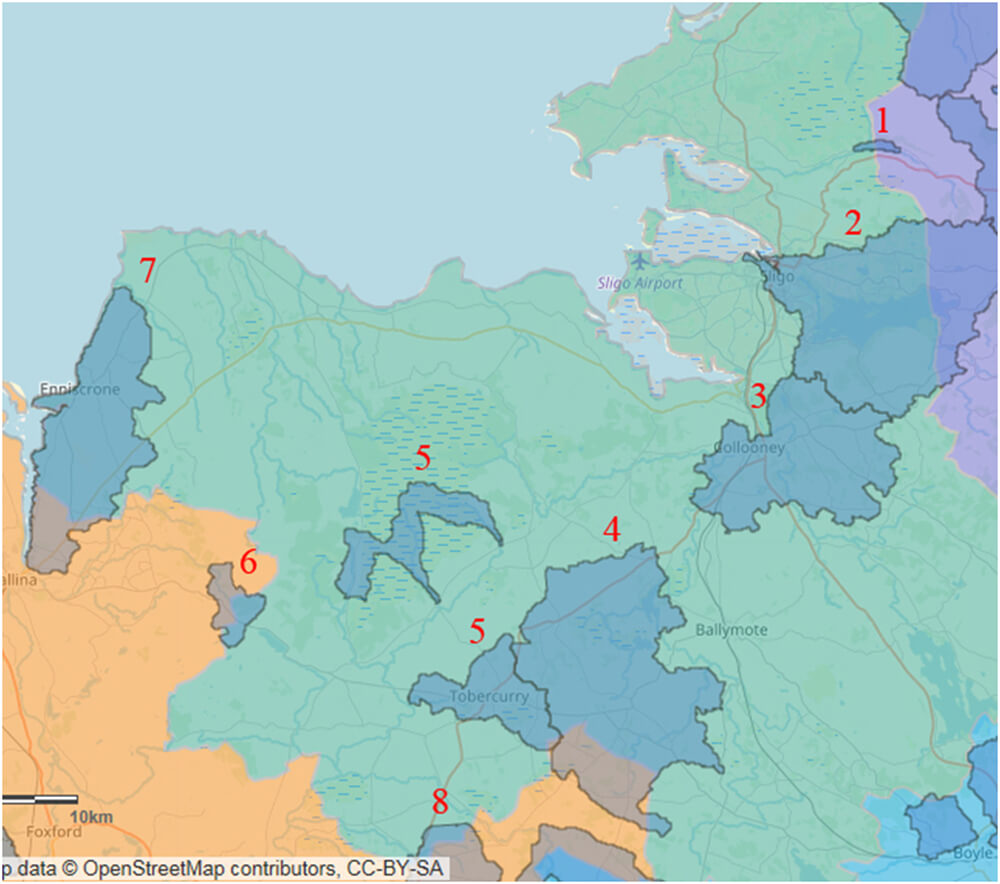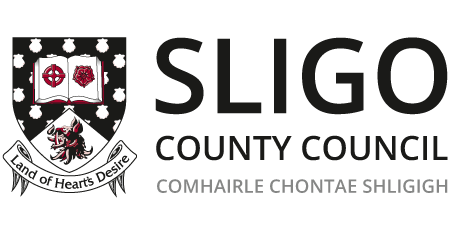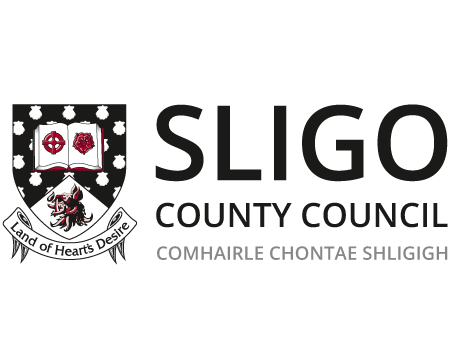River Basin District Projects
Western River Basin Management Plan
The principal piece of E.U. legislation relating to the protection of surface water, groundwater, tidal, and coastal water quality in Ireland is the Water Framework Directive. Nationally, work is ongoing on the second cycle of implementing the Directive, through implementation of the current national River Basin District Management Plan. The principal aim of the Water Framework Directive is to ensure that all waters achieve at least “good status” water quality within time frames specified in the Directive. Under the provisions of the Directive, surface water quality can be categorized into five status classifications; high, good, moderate, poor and bad. Based on the most recent water quality monitoring data, complied as part of ongoing national monitoring programmes, all groundwater within the functional area of Sligo County Council is currently classified at good status. However, there are a number of surface waters that need to be improved to good/high status in order to satisfy the requirements of the Directive.
Preliminary consultation work has also commenced with the aim of delivering a new National River Basin Management Plan for the third cycle of implementation of the Water Framework Directive. The production of the new management plan will involve significant consultation with the public and other state agencies. Sligo County Council will continue to liaise with the Environmental Protection Agency and other state agencies in relation to implementing the current plan and the preparation of the new national plan. Management and operational committees are established, and Sligo County Council actively participates in the process of implementation.
Sligo County Council plays a key role in implementing the programme of measures detailed in the plan. Under the provisions of the current plan, the emphasis is on integrated catchment management and relates primarily to the following specific areas of work;
- Licensing and enforcement of trade and domestic effluent discharges to waters under the Local Government (Water Pollution) Act 1977 as amended.
- Assessing planning proposals for domestic, commercial, agricultural and forestry developments in terms of environmental impact, with particular reference to protection of water quality.
- Implementation of the National Inspection Plan for domestic wastewater treatment systems as published by the Environmental Protection Agency.
- Implementation of Pollution Reduction Programmes for designated shellfish waters.
- Implementation of the European Union (Good Agricultural Practice For Protection of Waters) Regulations 2017, S.I. No. 605 of 2017, as amended.
- Complaint and query response relating to general environmental, water quality and planning related issues.
The current national River Basin District Management Plan sets out the following key priorities and objectives;
- To achieve good ecological status for all waters
- Compliance with existing EU legislation (e.g. UWWTD)
- Prevent deterioration in water quality status
- Meet water objectives for “protected areas”, such as designated bathing areas, drinking waters, designated shellfish, SACs etc
- Protect existing high status waters
Under the current cycle of implementation of the national River Basin District management Plan, a number of surface waters located within or adjoining County Sligo have been selected as Priority Areas for Action as outlined below;
- Glencar Lake
- Lough Gill
- Unshin/Owenmore River
- Templehouse Lake
- Tubbercurry ( including the upper Moy and Mad Rivers)
- Glenree River
- Bellawaddy River
- Charlestown/Owengarve River

Priority Areas for Action in County Sligo under current National River Basin District Management Plan.
These priority areas for action will receive focused attention during the current cycle of implementation of the Water Framework Directive in an attempt to restore water quality to good status. The ultimate success of the management plan will depend on the participation of all citizens, organizations and the commercial sector in the consultation and ultimate implementation process. This is an opportunity to ensure that water quality is protected for future generations.

